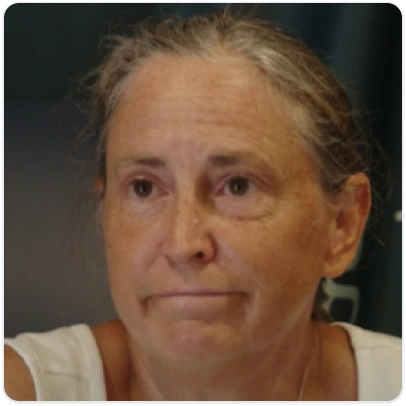While there’s no cure for chronic obstructive pulmonary disease (COPD), clinical trials are studying potential breathing treatments and targeted therapies that may improve quality of life.

Just one COPD flare-up can double your heart attack risk
In one study, 22% of people gave up jobs because of COPD.
People with COPD are at risk for lung infections, lung cancer, and heart problems

““Why not be that person to try to give back as much as I can?””
Amarion M.
Clinical Study Participant

“I wholeheartedly hope other people will step up and do it, so they have enough people to fully carry this through.”
Penny
Clinical Study Participant

“People have to step up and be part of the solution. It's nothing to be afraid of.”
Kathleen
Clinical Study Participant

“I think that people should try to help other islanders by getting this study going, and I think you should do it.”
Mike
Clinical Study Participant

“We need people to participate in studies to be able to get these things out there and get them approved.”
Janet
Clinical Study Participant
Testimonials provided by trial participants are personal experiences and do not necessarily represent the views of the trial sponsor or Care Access. They are not a substitute for medical advice, and the results of the trial may vary based on individual circumstances. Always consult with your healthcare provider before making any medical decisions.

By joining a clinical trial, you may access potential new therapies to reduce the severity of flare-ups, and/or reduce related health problems such as heart and lung issues.
Participating isn’t just about taking a step for your own health — you’re also helping researchers find better options.

Chronic Obstructive Pulmonary Disease (COPD) is a respiratory system disease that makes it harder to breathe due to airflow blockage and inflammation in the airways. It often includes chronic bronchitis (airway inflammation that causes a cough with mucus) and pulmonary emphysema (when air sacs in your lungs are damaged, making it harder to breathe).
COPD is usually caused by breathing in harmful substances like cigarette smoke, air pollution, or chemicals over a long period of time. Smoking causes more than 70% of COPD cases.
The "best" option depends on each individual’s health needs. Because there is currently no cure for COPD, clinical trials are exploring potential new treatments such as injectable therapies and inhaled lung treatments for COPD. A general goal is to improve breathing and reduce flare-ups and related health events. When you go through the screening process for a clinical trial, the team can help you understand if you are eligible to receive potential new breathing treatments or targeted therapies.
COPD typically worsens over time. Lung function gradually gets worse and symptoms like breathlessness and fatigue become more severe. With early intervention and consistent treatment, people can potentially slow the progression of COPD and improve their quality of life.